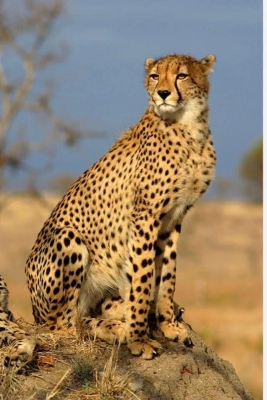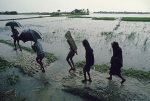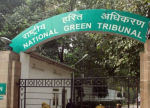
New Delhi: Project Cheetah took off about as swiftly as the cheetah, but whether it meets the same end as the big cat in the wild, is turning out to be a major looming concern.
In a very first such endeavour world-wide, eight Namibian cheetahs were brought in by the Government of India in September, and then 12 followed from South Africa in February. They were put in Kuno National Park in Madhya Pradesh.
The cats traversed 8,000 kilometres to make Project Cheetah a reality. It is intended that India has 40-45 cheetahs within the coming decade.
In India, cheetahs had gone extinct in 1952. But with Project Cheetah, the Central government has initiated to diversify and revitalise India’s wildlife and habitats.
Translocation has uprooted cheetahs from their natural habitat in Africa and placed them in a mock-natural habitat in the limited Indian scrub forests of Madhya Pradesh.
South African wildlife expert, who is closely associated with Project Cheetah, Vincent van der Merwe’s recent comment is nothing short of an alarm and calls for a holistic attention to the possibility and reality of cheetahs in India.
He said: “The mortality rate of these cheetahs amid their reintroduction will see a spike in the coming months.” He anticipates 50 per cent mortality in the first year, however, recent deaths are said to be within acceptable range – except for the female that died from mating injuries.
IANS reached out to a wildlife scholar who, on the condition of anonymity, agreed that “translocation likely has a big role to play in this.”
Over the last two months alone, six cheetahs including three cubs died at Kuno. Adult cheetahs have died of kidney ailments and cardio-pulmonary issues. Cubs have died of dehydration and from being too weak at birth.
This points to the obvious question about how to best care of these felines, at least till the time their population stabilises enough to leave the species to fend for themselves in the wild.
“The only way to make sure they don’t die is to probably try and give them intensive care till they are sub-adults. This will mean carefully provided food, shelter and medical care, perhaps in an indoor facility. But, then, they may turn out to be like zoo animals,” the expert pointed out.
Kuno National Park was chosen to replicate the habitat of the cheetahs from Namibia and South Africa, but the expert held that “Kuno doesn’t seem to be the most ideal habitat.”
The expert added: “Perhaps there is no ideal habitat for African cheetah in India. But maybe actual grasslands rather than scrub forests may be better habitats – but we have destroyed most of our grasslands and vilified them as wastelands.”
Although inhabitants of shrublands and grasslands, cheetahs can be tolerant of a range of habitats that includes temperate to hot deserts. Kuno also happens to be a grassland region but it does not have enough prey to support more than 15 cheetahs, as reported earlier.
The care for cheetah does not end with letting it out in a suitable habitat. Their social behaviour calls for attention too, as it was deemed “normal” when a female cheetah died from “violent” mating.
However, it remains unanswered why two male cheetahs were let out for one female for the purpose of mating when just one would suffice.
The behaviours of male and female cheetahs differ as the adult female cheetah is solitary except for breeding but the adult male is gregarious.
It makes it equally necessary to save the animal as it is to breed it. So, can India sustain cheetahs?
“India can sustain cheetahs only if grasslands and grasslands-dwelling prey animals for cheetah are protected and secured,” concluded the wildlife scholar, indicating that there is no substitute for the animal’s natural environment.
IANS



















